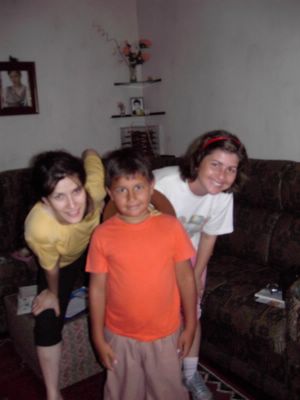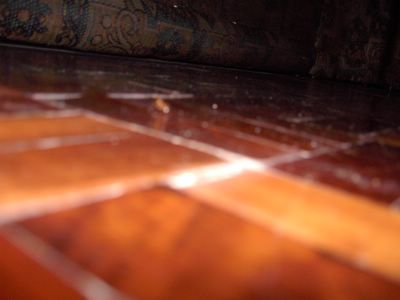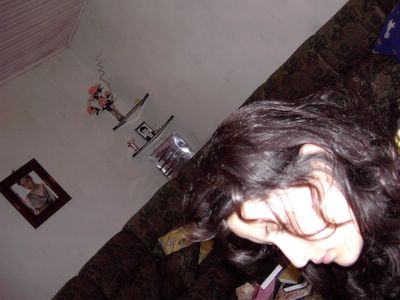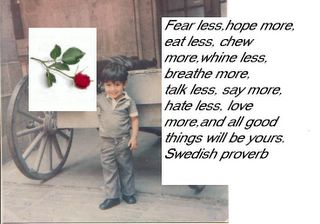Wellek & Warren on the concept of literature
In Chapter 2 of their classic Theory of Literature>, René Wellek and Austin Warren discuss the concept of literature and conclude that it refers to "imaginative literature." From René Wellek & Austin Warren, Theory of Literature, 3rd ed. (New York: Harcourt, Brace & World, 1956), pp. 20-28:
CHAPTER TWO
THE NATURE OF LITERATURE
THE first problem to confront us is, obviously, the subject matter of literary scholarship. What is literature? What is not literature? What is the nature of literature ? Simple as such questions sound, they are rarely answered clearly.
One way is to define 'literature' as everything in print. We then shall be able to study the 'medical profession in the fourteenth century' or 'planetary motion in the early Middle Ages' or 'witchcraft in Old and New England'. As Edwin Greenlaw has argued, 'Nothing related to the history of civilization is beyond our province'; we are ' not limited to belles-lettres or even to printed or manuscript records in our effort to understand a period or civilization ', and we 'must see our work in the light of its possible contribution to the history of culture. According to Greenlaw's theory, and the practice of many scholars, literary study has thus become not merely closely related to the history of civilization but indeed identical with it. Such study is literary only in the sense that it is occupied with printed or written matter, necessarily the primary source of most history. It can, of course, be argued in defence of such a view that historians neglect these problems, that they are too much preoccupied with diplomatic, military, and economic history, and that thus the literary scholar is justified in invading and taking over a neighbouring terrain. Doubtless nobody should be forbidden to enter any area he likes, and doubtless there is much to be said in favour of cultivating the history of civilization in the broadest terms. But still the study ceases to be literary. The objection that this is only a quibble about terminology is not convincing. The study of everything connected with the history of civilization does, as a matter of fact, crowd out strictly literary studies. All distinctions fall; extraneous criteria are introduced into literature; and, by consequence, literature will be judged valuable only so far as it yields results for this or that adjacent discipline. The identification of literature with the history of civilization is a denial of the specific field and the specific methods of literary study.
Another way of defining literature is to limit it to 'great books', books which, whatever their subject, are 'notable for literary form or expression'. Here the criterion is either aesthetic worth alone or aesthetic worth in combination with general intellectual distinction. Within lyric poetry, drama, and fiction, the greatest works are selected on aesthetic grounds; other books are picked for their reputation or intellectual eminence together with aesthetic value of a rather narrow kind: style, composition, general force of presentation are the usual characteristics singled out. This is a common way of distinguishing or speaking of literature. By saying that 'this is not literature', we express such a value judgement; we make the same kind of judgement when we speak of a book on history, philosophy, or science as belonging to 'literature '.
Most literary histories do include treatment of philosophers, historians, theologians, moralists, politicians, and even some scientists. It would, for example, be difficult to imagine a literary history of eighteenth-century England without an extended treatment of Berkeley and Hume, Bishop Butler and Gibbon, Burke and even Adam Smith. The treatment of these authors, though usually much briefer than that of poets, playwrights, and novelists, is rarely limited to their strictly aesthetic merits. In practice, we get perfunctory and inexpert accounts of these authors in terms of their speciality. Quite rightly, Hume cannot be judged except as a philosopher, Gibbon except as a historian, Bishop Butler as a Christian apologist and moralist, and Adam Smith as a moralist and economist. But in most literary histories these thinkers are discussed in a fragmentary fashion without the proper context -- the history of their subject of discourse -- without a real grasp, that is, of the history of philosophy, of ethical theory, of historiography, of economic theory. The literary historian is not automatically transformed into a proper historian of these disciplines. He becomes simply a compiler, a self-conscious intruder.
The study of isolated 'great books' may be highly commendable for pedagogical purposes. We all must approve the idea that students -- and particularly beginning students -- should read great or at least good books rather than compilations or historical curiosities. We may, however, doubt that the principle is worth preserving in its purity for the sciences, history, or any other accumulative and progressing subject. Within the history of imaginative literature, limitation to the great books makes incomprehensible the continuity of literary tradition, the development' of literary genres, and indeed the very nature of the literary process, besides obscuring the background of social, linguistic, ideological, and other conditioning circumstances. In history, philosophy, and similar subjects, it actually introduces an excessively 'aesthetic' point of view. There is obviously no other reason than stress on expository 'style' and organization for singling out Thomas Huxley from all English scientists as the one worth reading. This criterion must, with very few exceptions, favour popularizers over the great originators: it will, and must, prefer Huxley to Darwin, Bergson to Kant.
The term 'literature' seems best if we limit it to the art of literature, that is, to imaginative literature. There are certain difficulties with so employing the term; but, in English, the possible alternatives, such as 'fiction' or 'poetry', are either already pre-empted by narrow meanings or, like 'imaginative literature' or belles-lettres, are clumsy and misleading. One of the objections to 'literature' is its suggestion (in its etymology from litera) of limitation to written or printed literature; for, clearly, any coherent conception must include 'oral literature'. In this respect, the German term Wortkunst and the Russian slovesnost have the advantage over their English equivalent.
The simplest way of solving the question is by distinguishing the particular use made of language in literature. Language is the material of literature as stone or bronze is of sculpture, paints of pictures, or sounds of music. But one should realize that language is not mere inert matter like stone but is itself a creation of man and is thus charged with the cultural heritage of a linguistic group.
The main distinctions to be drawn are between the literary, the everyday, and the scientific uses of language. A discussion of this point by Thomas Clark Pollock, The Nature of Literature?, though true as far as it goes, seems not entirely satisfactory, especially in defining the distinction between literary and everyday language. The problem is crucial and by no means simple in practice, since literature, in distinction from the other arts, has no medium of its own and since many mixed forms and subtle transitions undoubtedly exist. It is fairly easy to distinguish between the language of science and the language of literature. The mere contrast between 'thought' and 'emotion' or 'feeling' is, however, not sufficient. Literature does contain thought, while emotional language is by no means confined to literature: witness a lovers' conversation or an ordinary quarrel. Still, the ideal scientific language is purely 'denotative ': it aims at a one-to-one correspondence between sign and referent. The sign is completely arbitrary, hence it can be replaced by equivalent signs. The sign is also transparent; that is, without drawing attention to itself, it directs us unequivocally to its referent.
Thus scientific language tends towards such a system of signs as mathematics or symbolic logic. Its ideal is such a universal language as the characteristica universalis which Leibniz had begun to plan as early as the late seventeenth century. Compared to scientific language, literary language will appear in some ways deficient. It abounds in ambiguities; it is, like every other historical language, full of homonyms, arbitrary or irrational categories such as grammatical gender; it is permeated with historical accidents, memories, and associations. In a word, it is highly 'connotative'. Moreover, literary language is far from merely referential. It has its expressive side; it conveys the tone and attitude of the speaker or writer. And it does not merely state and express what it says; it also wants to influence the attitude of the reader, persuade him, and ultimately change him. There is a further important distinction between literary and scientific language: in the former, the sign itself, the sound symbolism of the word, is stressed. All kinds of techniques have been invented to draw attention to it, such as metre, alliteration, and patterns of sound.
These distinctions from scientific language may be made in different degrees by various works of literary art: for example, the sound pattern will be less important in a novel than in certain lyrical poems, impossible of adequate translation. The expressive element will be far less in an 'objective novel', which may disguise and almost conceal the attitude of the writer, than in a 'personal' lyric. The pragmatic element, slight in 'pure' poetry, may be large in a novel with a purpose or a satirical or didactic poem. Furthermore, the degree to which the language is intellectualized may vary considerably: there are philosophical and didactic poems and problem novels which approximate, at least occasionally, to the scientific use of language. Still, whatever the mixed modes apparent upon an examination of concrete literary works of art, the distinctions between the literary use and the scientific use seem clear: literary language is far more deeply involved in the historical structure of the language; it stresses the awareness of the sign itself; it has its expressive and pragmatic side which scientific language will always want so far as possible to minimize. More difficult to establish is the distinction between everyday and literary language. Everyday language is not a uniform concept: it includes such wide variants as colloquial language, the language of commerce, official language, the language of religion, the slang of students. But obviously much that has been said about literary language holds also for the other uses of language excepting the scientific Everyday language also has its expressive function, though this varies from a colourless official announcement to the passionate plea roused by a moment of emotional crisis. Everyday language is full of the irrationalities and contextual changes of historical language, though there ate moments when it aims at almost the precision of scientific description. Only occasionally is there awareness of the signs themselves in everyday speech. Yet such awareness does appear - in the sound symbolism of names and actions, or in puns. No doubt, everyday language wants most frequently to achieve results, to influence actions and attitudes. But it would be false to limit it merely to communication. A child's talking for hours without a listener and an adult's almost meaningless social chatter show that there are many uses of language which are not strictly, or at least primarily, communicative.
It is thus quantitatively that literary language is first of all to be differentiated from the varied uses of every day. The resources of language are exploited much more deliberately and systematically. In the work of a subjective poet, we have manifest a 'personality' far more coherent and all-pervasive than that of persons as we see them in everyday situations. Certain types of poetry will use paradox, ambiguity, the contextual change of meaning, even the irrational association of grammatical categories such as gender or tense, quite deliberately. Poetic language organizes, tightens, the resources of everyday language, and sometimes does even violence to them, in an effort to force us into awareness and attention. Many of these resources a writer will find formed, and preformed, by the silent and anonymous workings of many generations. In certain highly developed literatures, and especially in certain epochs, the poet merely uses an established convention: the language, so to speak, poeticizes for him. Still, every work of art imposes an order, an organization, a unity on its materials. This unity sometimes seems very loose, as in many sketches or adventure stories; but it increases to the complex, close-knit organization of certain poems, in which it may be almost impossible to change a word or the position of a word without impairing its total effect.
The pragmatic distinction between literary language and everyday language is much clearer. We reject as poetry or label as mere rhetoric everything which persuades us to a definite outward action. Genuine poetry affects us more subtly. Art imposes some kind of framework which takes the statement of the work out of the world of reality. Into our semantic analysis we thus can reintroduce some of the common conceptions of aesthetics: ' disinterested contemplation ', ' aesthetic distance', 'framing'. Again, however, we must realize that the distinction between art and non-art, between Literature and the non-literary linguistic utterance, is fluid. The aesthetic function may extend to linguistic pronouncements of the most various sort. It would be a narrow conception of literature to exclude all propaganda art or didactic and satirical poetry. We have to recognize transitional forms like the essay, biography, and much rhetorical literature. In different periods of history the realm of the aesthetic function seems to expand or to contract: the personal letter, at times, was an art form, as was the sermon, while today, in agreement with the contemporary tendency against the confusion of genres, there appears a narrowing of the aesthetic function, a marked stress on purity of art, a reaction against pan-aestheticism and its claims as voiced by the aesthetics of the late nineteenth century. It seems, however, best to consider as literature only works in which the aesthetic function is dominant, while we can recognize that there are aesthetic elements, such as style and composition, in works which have a completely different, non-aesthetic purpose, such as scientific treatises, philosophical dissertations, political pamphlets, sermons.
But the nature of literature emerges most clearly under the referential aspects. The centre of literary art is obviously to be found in the traditional genres of the lyric, the epic, the drama. In all of them, the reference is to a world of fiction, of imagination. The statements in a novel, in a poem, or in a drama are not literally true; they are not logical propositions. There is a central and important difference between a statement, even in a historical novel or a novel by Balzac which seems to convey 'information' about actual happenings, and the same information appearing in a book of history or sociology. Even in the subjective lyric, the 'I' of the poet is a fictional, dramatic 'I '. A character in a novel differs from a historical figure or a figure in real life. He is made only of the sentences describing him or put into his mouth by the author. He has no past, no future, and sometimes no continuity of life. This elementary reflection disposes of much criticism devoted to Hamlet in Wittenberg, the influence of Hamlet's father on his son, the slim and young Falstaff, ' the girlhood of Shakespeare's heroines ', the question of 'how many children had Lady Macbeth'. Time and space in a novel are not those of real life. Even an apparently most realistic novel, the very 'slice of life' of the naturalist, is constructed according to certain artistic conventions. Especially from a later historical perspective we see how similar are naturalistic novels in choice of theme, type of characterization, events selected or admitted, ways of conducting dialogue. We discern, likewise, the extreme conventionality of even the most naturalistic drama not only in its assumption of a scenic frame but in the way space and time are handled, the way even the supposedly realistic dialogue is steered and conducted, and the way characters enter and leave the stage. Whatever the distinctions between The Tempest and A Doll's House, they share in this dramatic conventionality.
If we recognize 'fictionality', 'invention', or 'imagination' as the distinguishing trait of literature, we think thus of literature in terms of Homer, Dante, Shakespeare, Balzac, Keats rather than of Cicero or Montaigne, Bossuet, or Emerson. Admittedly, there will be 'boundary' cases, works like Plato's Republic to which it would be difficult to deny, at least in the great myths, passages of 'invention' and 'fictionality', while they are at the same time primarily works of philosophy. This conception of literature is descriptive, not evaluative. No wrong is done to a great and influential work by relegating it to rhetoric, to philosophy, to political pamphleteering, all of which may pose problems of aesthetic analysis, of stylistics and composition, similar or identical to those presented by literature, but where the central quality of fictionality will be absent. This conception will thus include in it all kinds of fiction, even the worst novel, the worst poem, the worst drama. Classification as an should be distinguished from evaluation.
One common misunderstanding must be removed. 'Imaginative' literature need not use images. Poetic language is permeated with imagery, beginning with the simplest figures and culminating in the total all-inclusive mythological systems of a Blake or Yeats. But imagery is not essential to fictional statement and hence to much literature. There are good completely imageless poems; there is even a 'poetry of statement'. Imagery, besides, should not be confused with actual, sensuous, visual image-making. Under the influence of Hegel, nineteenth-century aestheticians such as Vischer and Eduard von Hartmann argued that all an is the ' sensuous shining forth of the idea', while another school (Fiedler, Hildebrand, Riehl) spoke of all art as 'pure visibility'. But much great literature does not evoke sensuous images, or, if it does, it does so only incidentally, occasionally, and intermittently. In the depiction even of a fictional character the writer may not suggest visual images at all. We scarcely can visualize any of Dostoyevsky's or Henry James's characters, while we learn to know their states of mind, their motivations, evaluations, attitudes, and desires very completely.
At the most, a writer suggests some schematized outline or one single physical trait - the frequent practice of Tolstoy or Thomas Mann. The fact that we object to many illustrations, though by good artists and, in some cases (e.g. Thackeray's), even by the author himself, shows that the writer presents us only with such a schematized outline as is not meant to be filled out in detail. If we had to visualize every metaphor in poetry we would become completely bewildered and confused. While there are readers given to visualizing and there are passages in literature where such imaginings seem required by the text, the psychological question should not be confused with analysis of the poet's metaphorical devices. These devices are largely the organization of mental processes which occur also outside of literature. Thus metaphor is latent in much of our everyday language and overt in slang and popular proverbs. The most abstract terms, by metaphorical transfer, derive from ultimately physical relationships (comprehend, define, eliminate, substance, subject, hypothesis). Poetry revives and makes us conscious of this metaphorical character of language, just as it uses the symbols and myths of our civilization: Classical, Teutonic, Celtic, and Christian.
All these distinctions between literature and non-literature which we have discussed - organization, personal expression, realization and exploitation of the medium, lack of practical purpose, and, of course, fictionality - are restatements, within a framework of semantic analysis, of age-old aesthetic terms such as 'unity in variety', 'disinterested contemplation', 'aesthetic distance', 'framing', and 'invention', 'imagination', 'creation'. Each of them describes one aspect of the literary work, one characteristic feature of its semantic directions. None is itself satisfactory. At least one result should emerge: a literary work of art is not a simple object but rather a highly complex organization of a stratified character with multiple meanings and relationships. The usual terminology, which speaks of an 'organism', is somewhat misleading, since it stresses only one aspect, that of 'unity in variety', and leads to biological parallels not always relevant. Furthermore, the 'identity of content and form' in literature, though the phrase draws attention to the dose interrelationships within the work of art, is misleading in being overfacile. It encourages the illusion that the analysis of any element of an artefact, whether of content or of technique, must be equally useful, and thus absolves us from the obligation to see the work in its totality. 'Content' and 'form' are terms used in too widely different senses for them to be, merely juxtaposed, helpful; indeed, even after careful definition, they too simply dichotomize the work of art. A modern analysis of the work of art has to begin with more complex questions: its mode of existence, its system of strata?













































